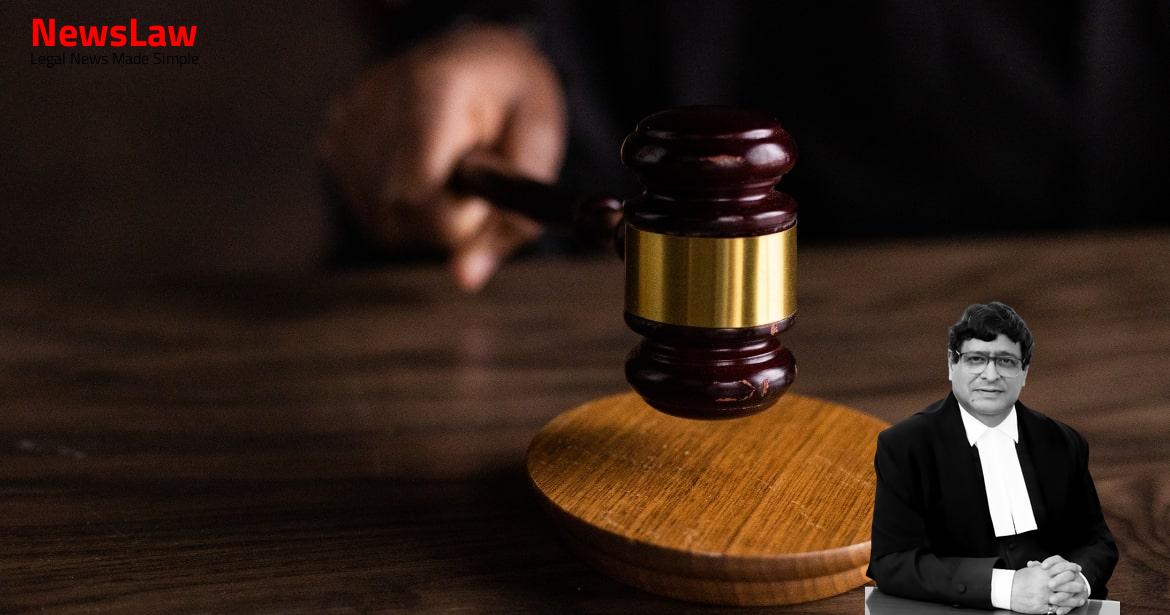In the realm of criminal justice, certain cases stand out for their complexity, legal implications, and the pursuit of truth and fairness. One such case is Dattatraya v. State of Maharashtra, which captured the attention of legal scholars and the public alike. In this blog, we delve into the intricacies of this landmark case, exploring the facts, legal arguments, and the ultimate quest for justice that unfolded in the highest court of India. From the initial trial to the appeals process and the decisive verdict, join us on a journey to understand the nuances of this significant legal battle and its implications for the Indian legal system.
Facts
- The appellant was convicted under Sections 302 and 316 of the IPC.
- The High Court upheld the appellant’s conviction and sentenced him to life imprisonment under Section 302 and 10 years of R.I. under Section 316 of IPC.
- The appellant was directed to pay a fine of Rs.5000 and Rs.2000 for the respective charges.
- The appellant was 32 years old at the time of the incident, and his wife, the deceased, was 30 years old.
- The appellant had quarreled with the deceased and poured kerosene on her.
- The appellant was addicted to liquor.
- Maternal grandmother of the deceased, PW-7, was taking care of the deceased and witnessed the events leading to the incident.
- Medical officer Dr. Deshpande examined the patients and endorsed their statements.
- The deceased gave a dying declaration stating the husband’s involvement in the incident.
- The appellant’s wife sustained burn injuries and later died along with the stillborn child.
- The appellant was convicted of offenses under sections 302 and 316 of IPC.
- The appellant’s appeal was dismissed by the Bombay High Court which led to a Special Leave Petition filed before the Supreme Court.
- Evidence presented by the prosecution strongly supported the incident and the appellant’s actions.
- Multiple witnesses confirmed that the appellant was in an inebriated state and committed the act of pouring kerosene on his wife.
Also Read: Murder Case: Ram Murti Sharma v. The State of UP
Analysis
- The appellant poured kerosene on the deceased and set her on fire, resulting in burn injuries
- The deceased gave birth to a stillborn child the next day, linking the act to Section 316 of the IPC
- Evidence indicates the act was a result of sudden fight and quarrel between the husband and wife
- The appellant’s act was not premeditated, but done under the influence of alcohol
- The court considered converting the offense from Section 302 to Section 304 Part-II IPC
- There was no intention to kill the deceased, leading to the downgrading of the offense classification
- This part of the judgement discusses the circumstances surrounding the death of the deceased who was nine months pregnant at the time.
- It highlights that the pouring of kerosene on the deceased led to the fire and subsequent burn injuries which caused the death.
- The judgement refers to the act as falling under the fourth exception in Section 300 of the IPC.
- It states that the act constitutes culpable homicide but not murder, as it was committed without premeditation in a sudden fight in the heat of passion upon a sudden quarrel.
- The judgement specifies that the offender did not take undue advantage or act in a cruel or unusual manner in this case.
- The appellant has already served more than 10 years in incarceration.
- The court accepts the argument that the case is more suited to culpable homicide not amounting to murder under Section 304 Part II IPC.
- The conviction is altered from Section 302 IPC to Section 304 Part II IPC.
- The accused had no intention to cause death but only intended to inflict burns and frighten the victim.
- The situation escalated beyond the accused’s control, resulting in fatal consequences.
- The injuries inflicted were not intended by the accused.
Also Read: The State of Karnataka v. Naresh Kumar: Quashing of FIR
Decision
- The appeal has been partly allowed.
- The accused will be released from jail unless required for another offence.
- The findings of Section 302 have been converted to Section 304 Part II of IPC.
- The accused has been sentenced to 10 years of rigorous imprisonment.
- The findings of the trial court and High Court have been modified accordingly.
Also Read: Legal Analysis of Retroactive Legislation in FSS Act Case
Case Title: DATTATRAYA Vs. THE STATE OF MAHARASHTRA (2024 INSC 167)
Case Number: Crl.A. No.-000666-000666 / 2012



